World-building: The Undervalued Element Of Speculative Fiction
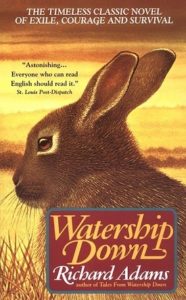 I suppose many readers would disagree with the idea that world-building is an undervauled element of speculative fiction, so perhaps I’m only speaking for myself. Generally, when I think of books I love, I think about the overall “what happened.” I may also think of the main character and how he changed or grew or learned. And yet, when I think of the books I love best, I realize they have one thing in common–they transport me to another place and time. I live in that world.
I suppose many readers would disagree with the idea that world-building is an undervauled element of speculative fiction, so perhaps I’m only speaking for myself. Generally, when I think of books I love, I think about the overall “what happened.” I may also think of the main character and how he changed or grew or learned. And yet, when I think of the books I love best, I realize they have one thing in common–they transport me to another place and time. I live in that world.
Certainly most of us speculative fiction readers would recognized the world-building of J. R. R. Tolkien in The Lord of the Rings and of C. S. Lewis in Narnia. We are most likely as familiar with Middle Earth as if we had grown up there and with Narnia as if we took all our vacations there. Those worlds are so rich they practically take on character status.
It is that richness, I’m realizing, that makes me lose myself in a story. Yes, I want to keep reading when a character captures my interest or my heart, when danger threatens him and he must find a way to overcome. But there are stories that take me further.
These are ones that cause me to blink when I put the book down and re-orient because I expected to find Gandalf standing nearby or a white wilderness outside my window.
I’ve had that kind of strong reaction to a few books–though certainly not all the ones I have enjoyed. Most memorable was Watership Down by Richard Adams. Perhaps the very otherness of the world Adams created caused me to be lost in the rabbit warrens along with Fiver and Hazel, Bigwig and Silver. How often do you think like a rabbit, after all?
Another author that transported me to a different world was Stephen R. Donaldson in The Chronicles of Thomas Covenant the Unbeliever. Here’s an excerpt from Lord Foul’s Bane in the chapter in which the main character, who believes he’s dreaming, first encounters the fantasy world into which he’s come.
“Have you been to our Stonedown?” [asked Lena.]
“No.” [Thomas] was tempted to ask her what a Stonedown was, but he had a more important question in mind. “Where–” The word caught in his throat as if it were a dangerous concession to darkness. “Where are we?”
“We are upon Kevin’s Watch.” Springing lightly to her feet, she stretched her arms to the earth and sky. “Behold . . . This is the Land,” Lena said joyfully, as if the outspread earth had a power to thrill her. “It reaches far beyond seeing to the north, west, and east, though the old songs say that High Lord Kevin stood here and saw the whole of the Land and all its people. So this place is named Kevin’s Watch.”
In just that small sample, it’s apparent that world-building that transports a reader is more than a place with different sights or strange names. First there are people and they have a history and geography. They have songs.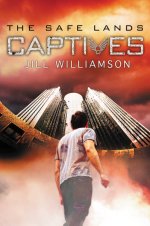
The latest book to transport me so thoroughly to another places was Captives by Jill Williamson. This dystopian story actually has two distinct cultures, which makes it all the more believable. Here’s an excerpt told in the point of view of one character making the transition from his primitive culture to that of one steeped in technology.
“You juicing, shell?” Skottie asked.
“Skottie’s mustache looked like two strokes of paint going out from each nostril. “What?”
“Stims, joy juice, hard candy, vapes. Uh . . . narcots?”
“Narcotics?” Omar asked, recalling the word from Old movies.
“Skottie bobbed his head. “That’s what I said.”
“The guy thought Omar was on drugs? “Someone killed my father! And it was because of me.”
“Ahh, premie lib,” Skottie said.
Omar looked over at Skottie. “Premie what?”
“Going on to the next life after reaching your age limit. I hear having someone go through that can be tough. How old was your friend?”
“Omar rubbed his scar. “My father was forty-six.”
Skottie shrugged. Past his time then. Safe Lands used to liberate at fifty, but they changed it to forty back in seventy-two. It’s for the best. No one wants to get old.”
The best? “But I just left him there. I should go back. Bury him maybe. And the others. Can we turn around?”
“Walls, no, shell.”
Books that transport me somewhere else have a dense culture filled with rituals, slang, moral right and wrong, tradition, art, entertainment, bureaucracy, and so much more. Captives has it all.
What books transport you somewhere else? How do you think the author pulled that off? How important is world-building to your reading experience when it comes to speculative literature? Do you think it’s undervalued?
































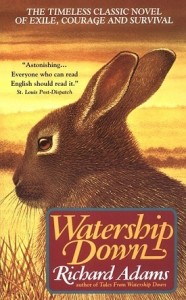


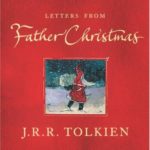

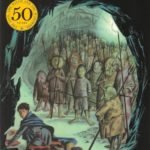




World building is part of the experience of the novel. One series of books that transported me was by Terry Brooks starting with Magic Kingdom for Sale: Sold! Another was the Myth series by Robert Aspirin starting with Another Fine Myth.
These are great comments and observations. I agree whole-heartedly that the best world-building is worked seamlessly into a story without stopping to give a history lesson. I was actually surprised when I was looking for an excerpt from Lord Foul’s Bane how explicit Mr. Donaldson was in his world-building. The story really stopped while Lena told Thomas about how and why Kevin’s Watch got it’s name.
In contrast, when I read Jill’s Captives, I remember the scene I quoted, thinking at the time that there were parts I didn’t understand, but that it would all clear up eventually. And it did. Now, going back to that scene, I understand perfectly what Skottie was saying. In fact, it amazes me how many little facts she slipped into that bit of conversation–an attitude about drugs, a misunderstanding of the term “father,” the concept of not wanting to be old, of life ending at forty, of some people being referred to as shells.
And yet, none of it came across as the author telling the reader things to explain how the world worked. That’s the key, I think.
Becky
OK, I thought that last comment was going to the back of the line, but that’s all right.
Bonnie, I appreciate these examples of books that transported you. I’ve not read Terry Brooks (I know, it’s a shameful thing for a fantasy writer to admit), nor Robert Aspirin. Those are titles I’ll have to put on my TBR list.
Becky
The Myth series! Those were so punny and I loved them!
I loved Magic Kingdom for Sale: Sold! I could almost imagine seeing the catalog with the kingdom in it (not that I could have afforded it lol).
I was actually just thinking about this today! I think the beauty of world building is when it blends seamlessly into the story. You don’t have to stop and get a history lesson but almost without knowing it, you can perceive that’s there’s a bigger world out there beyond what you’re reading on the page. I think it’s the details that do it.
Worldbuilding is probably the most immediately identifiable element of most kinds of speculative fiction. Many sub-genres are defined by worldbuilding characteristics. For instance, space opera has to be set at least partially in space, with a society possessing the capability of interplanetary or interstellar travel. The simplest way to define high fantasy is by its self-contained world.
Good worldbuilding is absolutely critical for these and other genres, but maybe worldbuilding is one of those things that doesn’t naturally call attention to itself when done right. I do enjoy imaginary worlds for their own sake, however. I really could read an appendix or an encyclopedia about the details of a made-up mythos and enjoy the experience, even though it wouldn’t be the same as reading a story that lives there. I’m probably not representative for the majority of readers, though. The story and the world should not fight for the reader’s attention; they should be inseparably connected.
A fully-realized setting — complete with disbelief-suspending culture, history, art, language, economics, politics, geography, biology, etc. — is an essential element of quality spec fiction, if only because the story’s whole premise will depend upon readers believing they’ve been transported to a time, place, or perspective different from their own. As someone with an image-based imagination, I’m constantly feeding off of descriptive details while I read, ingesting individual pieces of the author’s visual puzzle, and rebuilding his world in my head. While writing my own stuff, I pause every several paragraphs to ask myself: “What’s my viewpoint character seeing, hearing, smelling, feeling, and tasting at this moment?” It never ceases to amaze me how heavily I tend to lean on sight to carry my story’s settings, unless I make that conscious effort to deepen my reader’s sensory experience.
The best kind of descriptive writing is, I think, that which performs multiple functions within the story. Straight-up description easily becomes dull, and setting-related data-dumps parcelled out in dense blocks of text can take a plot from sixty to zero in six sentences flat. But if an author shows us his story’s world through the eyes of its inhabitants, we learn just as much about them as we do about their surroundings. Subtext-saturated settings never get stale.
Two authors I really admire for their worldbuilding are Tad Williams and Patrick Rothfuss. When I started reading Williams’ The Dragonbone Chair, I was astonished by the sheer volume of context-appropriate, unmixed, and totally original metaphors. I mean, we’re talking multiple descriptive metaphors per page! I thought to myself, “There’s no way he can keep this up for the next 3,000 pages.” But I was wrong. It really challenged me to up my metaphor game.
Rothfuss, while brilliant at creating a ‘sense of place,’ is an admirable worldbuilder for another reason: you believe with all your mind that his world works. The protagonist of The Name of the Wind and The Wise Man’s Fear must contend for survival in a cultural and economic environment of seemingly effortless depth and realism, where suspense is generated not so much by monsters and demons as by the prospect of not paying one’s bills on time. Now that’s a fear to which I can relate.
When I think of imaginatively created worlds, one that immediately comes to mind is the alt-Earth in Jasper Fforde’s Thursday Next series–or perhaps I should say “worlds,” because there’s the main world–a sort of alternate 80s with an ongoing Crimean War and dodos and literature taken on a par with religion–and the literary world with literal bookworms and myspelling vyriouses.
One of the other worlds I like is Mistmantle in the Mistmantle Chronicles–the setting is only an island, but all the characters are used in multiple books and they are just so natural–the sort of everyday people with the dullness rubbed off so one sees just how special they are.
I thought D. Barkley Briggs did a good job of world-building in the Legends of Karac Tor. His world was large and very complex, but what most affected me was its feeling of age, of burden.
In the Wingfeather Saga, Aerwiar was entrancing. We began with the thwaps, the dragon festival, Zouzab, Armulyn, Peet the Sock Man – and the Fangs. Andrew Peterson has an odd talent of combining the silly and the sinister.
I also liked The Charlatan’s Boy and its southern, Mark Twain, western fantasy feel. That book was fun in so many ways.
Though I read only one book of Auralia’s Colors, I thought Jeff Overstreet was quite skilled at world-building. His world was impressive, if not exactly enjoyable.
And though I frankly could go on, I’m going to sign off for now. Good discussion, Becky!
I agree, Shannon. I enjoyed Jeffrey Overstreet’s world-building and his poetic way of writing.
Good examples from more recent Christian speculative literature. I agree with the ones you mentioned, Shannon. I think Andrew Peterson probably transported me most successfully to that other world. Jeffrey Overstreet, too, but it was so dark, I didn’t really like being there.
I think Jonathan Rogers creates the world by the voice of his character. It’s an interesting idea. I hadn’t thought before how voice could play a part in world-building.
Becky
I just finished reading Diana Wynn Jones’ “Howl’s Moving Castle” for the second time. Brilliant.
T.H. White’s “The Once And Future King” is another.
Being convinced you are visiting a fully realized, functional, and completely magical world is one of life’s many pleasures.
Jill Williamson’s Blood of Kings was my favey speculative fantasy novel. Also, if you can get through it, Brandon Sanderson is another great world builder. I learned a lot from his book. Although I didn’t get through all of it, 1000 pages long!!!! Wow!!! But I learned a lot.
I now kinda wonder if this might be what is missing in christian novels, that rich world building?
First of all – i loved Adams’ Watership Down, and also Shardik, which was “built” just as well but doesn’t get near as much attention.
Secondly, have to give acknowledgment to Jonathan Strange and Mr. Norrell. Susanna Clarke didn’t completely invent a new world, but what she actually did – invent a new history, weave it in with the preexisting one, make it fit without making any (other) huge changes to Europe’s history, culture, or influential people – might have been more difficult. Yet she pulls it off so well that as you read you find yourself wondering if this or that person actually existed or if this or that book was actually written.
Terry Pratchett, Dianna Wynne Jones and Megan Whalen Turner don’t succeed quite on the level of Collins or Adams, maybe in part because the first two at least are also making fun of various fantasy clichés, but their worlds are multi-cultural and believable.
Finally, a nod to Brandon Sanderson whose world in the Mistborn books took a little getting used to but had a fantastically original magic system, and Suzanne Collins (both Underland Chronicles and Hunger Games trilogy) who made societies that if weren’t completely plausible at least were interesting and engaging enough that you didn’t care while you were reading (at least in my experience).
Sanderson is an absolute genius, and likely the hardest-working author in the genre today. The only reason I didn’t mention him in my earlier comment is that sometimes I’m afraid I might gush about him a little too much. The Mistborn trilogy is great, but if you haven’t read Alloy of Law (a sequel thereof), Elantris, Warbreaker, The Emperor’s Soul (nominated for a Hugo in the novella category this year), and especially The Way of Kings (1,000 pages, and first in a ten-part series), you’ve got a lot to anticipate. The genius of Sanderson is found not only in his engaging, sympathetic, memorable characters, his rich cultural construction, his precise sense of pacing, and his ingenious magic systems (of which he seems inexhaustible), but in the fact that he loves to set his readers up. Every time you roll your eyes at some turn of events, expecting yet another iteration of a cliched fantasy trope, he pulls a head-fake and turns that trope on its head — not in clunky and cynical Shrek fashion, but with the finesse of an canny storyteller.
I agree that Sanderson is a great storyteller and a great worldbuilder. I think he’s only average as a mythopoet, though, which is related to worldbuilding. Both Mistborn and Elantris throw religions and legends around like candy, without much of a sense of destiny tied in to the origins of the peoples of his worlds.
But then, I haven’t read as much of his writing as you have. I’m excited to read The Way of Kings, but I want to finish the Mistborn trilogy first, and I have a lot of other stuff to read in the meantime.
If mythopoetry is your thing, then I definitely recommend Way of Kings. Personally, I rate it higher than Lord of the Rings as a novel (sacrilige, I know). It has the sense of scope and historical depth I think you’re referring to when you say “mythopoetry.” You’re quite right that a lot of Sanderson’s other work simply doesn’t have that weighty feel, but that’s one of the reasons I love him so much: he doesn’t feel obligated to imitate Tolkien all the time. He can write a heist story, populate it with characters who engage in nonstop witty banter, and the whole thing within a single city, and still remain within the bounds of epic high fantasy. He’s stirring a stagnant genre.
Thanks, that’s helpful.
Robert Jordan is my favorite of the modern high fantasy authors (if he can still be called that after his passing), mainly because of the deep myth that he created for his world. Sanderson’s worldbuilding is just as thorough as Jordan’s and even more original, but it does not feel mythological in the same way The Wheel of Time and The Lord of the Rings do.
Back on topic:
The creation of mythology is very helpful for worldbuilding. Even some science fiction story-worlds use some myth-making, including Babylon 5 and Battlestar Galactica. Without a coherent mythos, a story-world might feel shallower, even if it has plenty of worldbuilding. I think you can pull off not having an entire mythological foundation for your worlds, but you pretty much have to be Brandon Sanderson to do it. (I also suspect that Sanderson must have some concept of a mythic background for his works, even if that is not what he primarily uses for plot material.)
I’d love to read more of Sanderson’s stuff. Unfortunately the local public library has a really lousy selection, and i’m hesitant about buying books i haven’t read even if i’m familiar with the author. I might have to change that if i want to get some decent reading in, it seems.
The Way of Kings and Elantris are definitely worth buying sight-unseen. In hardback. Warbreaker, though not Sanderson’s best, is available as a free download from his website (http://www.brandonsanderson.com/portal/Warbreaker). Yes, that’s the entire book — not just a synopsis or sample chapter. I started reading it on a whim before I became the rabid fan I am now and was much annoyed to discover I couldn’t stop. It’s nearly 700 pages and I finished it in less than a week. Ugh. Those were late nights.
Also, Alloy of Law is a sequel to the Mistborn trilogy, so you should, of course, buy it. 😉 It’s not part of the two successive trilogies Sanderson has planned for that world (the next one featuring a contemporary level of technology based on allomancy and feruchemy, the third a sci-fi level) — it’s an in-between, standalone story set during the period of Scadrial’s history equivalent to the turn of the century here on Earth. It’s to Mistborn as Legend of Korra is to Avatar: The Last Airbender, in case that reference makes sense to you.
Okay, I think you lost me there. What exactly do you mean by “mythology” as distinct from worldbuilding in general? Sanderson’s worlds are chalk full of religious, cultural, and political systems which draw on some pretty complex in-world histories. Are you simply referring to the timeframes encompassed by those histories? It’s true: the conflict in Sanderson novels isn’t typically driven by a whole lot of ancient, legendary, supernatural villains rising from inadequate prisons after thousands of years, but, then again, that trope’s been done to death already by Tolkien, Jordan, Williams, et al. If mythology makes everything feel moldy (and I don’t say that in a disparaging way), then mold certainly doesn’t characterize Sanderson — his worlds feel fresh and alive, and that quality lends them a measure of realism, since folks in the ‘real world’ typically don’t concern themselves — let alone contend — with anything that occurred before their generation.
But you really do need to read The Way of Kings. Thus far, it’s Sanderson’s opus. He worked on it for over twelve years, and it shows. Its even-longer sequel, Words of Radiance, is slated for release this fall. Also, you might be fascinated to learn that all of Sanderson’s original high fantasy takes place in a common fictional universe — the Cosmere — and that there’s one particular character — a most intriguing character — who’s made a cameo appearance in every single storyline. Oh yeah.
Mythology, anyone? ;-D
Great discussion. I’m curious about the difference between myth and world-building. Doesn’t a world that feels like Somewhere Else have to have the elements of myth–stories and songs about times past? I guess I’ve thought of the myth building as one aspect of the world-building.
Becky
I’ll try to explain what I see as the difference between worldbuilding and mythopoeia. I’ll use the styles of Tolkien, Jordan, and Sanderson as examples.
Tolkien wrote a poem called “Mythopoeia” in which he romanticized the art of sub-creation (his term). But I think Tolkien was mostly concerned with either creating mythic origins for new story worlds (as he did), or creating new myths set in our world by using elements of existing myths.
I think The Lord of the Rings ended up being one of the first examples of deliberate worldbuilding, but the worldbuilding grew out of the mythopoeia. That may be part of the reason why LotR is not all that accessible for many modern readers. Although Middle Earth is a vibrant, masterfully constructed story-world with plenty of detail about cultures, landscapes, languages, etc., the main emphasis was on creating a powerful, moving, coherent myth rather than on building an immersive alternate world for the reader to live in.
I think Robert Jordan’s Wheel of Time series demonstrates both explicit mythopoeia and explicit worldbuilding. The first chapter of each book in The Wheel of Time contains an omniscient-POV opening (this one is copied from the first book in the series, The Eye of the World — the other books may be slightly different, but the openings are all very similar and have the same feeling):
That opening paragraph immediately sets the story in the context of a vast mythology. Jordan was less subtle with his mythology than Tolkien was, which probably means he was less skillful at it, but both Tolkien and Jordan developed complete mythologies for their worlds, from creation to ultimate destiny, or at least an implication of an ultimate destiny for the age of the world that the characters live in. This may also explain why neither worlds contain much organized religion, despite both authors having been actively religious.
WoT contains fewer myths and legends than LotR/The Simarillion does, although it definitely has its share of both myth and legend. However, I think Jordan did more deliberate worldbuilding than Tolkien did. Jordan’s world contains many countries and ethnicities. All the people from the different countries have different quirks and customs. They all wear their hair differently, so that you can often tell what country someone comes from by their hair style. There is a lot of heraldry, and a fair amount of description put into details like clothing, armor, weapons, and currency. Oddly, Jordan doesn’t do very much with languages (most of his ethnic groups only having different slang and dialect) — an area of worldbuilding where Tolkien has never been equalled. Importantly, some of Jordan’s worldbuilding is explicitly related to his legends. One group of people refuse to touch swords, which is an interesting detail of their cultural worldbuilding. However, the reason that those people refuse to touch swords is drawn from deep legend, a legend that is very important to the overall WoT mythos.
Sanderson seems to lack the continuity between worldbuilding and mythopoeia, based on the two books of his that I’ve finished reading. Unlike Tolkien or Jordan, his worlds contain multiple organized religious traditions. The religions are the part of the worldbuilding, but the relationship between religions and the mythos of Sanderson’s world is unclear. Mistborn even feels more religiously fragmented than our world. Sanderson’s brilliant unique magic systems also lack a clear connection to ancient origin myths. In WoT, the magical ability of channeling the “Source” is dirrectly tied to the myth of the Wheel. I’m not sure off the top of my head, but I think the “Source” is the power that the Creator ordained to keep the Wheel turning, or something. Sanderson’s magic is great…. but I don’t see how the rune-based magic of Elantris or the Alomancy/Feruchemy in Mistborn relates to the creation of the world. But I haven’t finished the Mistborn trilogy yet (I’m currently reading the second one), so I’ll hold off judgement on that, and please don’t spoil it for me. 😉
Austin Gunderson wrote:
This is the second time that I’ve read about the Cosmere on a blog. That’s why I said in my previous comment that Sanderson must have some concept of a mythic background for his work. I don’t think such a thorough fantasy setting is possible without one. However, I think Sanderson’s style clearly favors leaving out mythopoeia from the main plot, which does make the Sanderson novels that I’ve read so far feel less awesome and mysterious to me than LotR or WoT. (I’m not attacking Sanderson, I like his writing, just a personal observation based on limited exposure.)
Ah, I think I see: mythopoeia encompasses the storyworld’s origin story — its creation and subsequent macro-level development. That makes sense. And all I’ll say regarding Sanderson at this point is that we’ll have to discuss this topic again as soon as you finish Hero of Ages. ;-p
Though I haven’t yet begun reading The Wheel of Time, I’m rather familiar with Tolkien’s mythos. To my mind, The Lord of the Rings is effective at crossing the ocean of Tolkien’s legendarium — which was never really intended as the backdrop for a novel — because it’s a skiff skimming over the surface rather than a submarine plumbing the abyssal depths. If you like, you can trail your hand in the boat’s churning wake and wonder what cities lie buried far beneath the waves, but then the pursuing enemy ship once again rises above the horizon and the reverie is disrupted. The elves sing sad songs by moonlight, the sonework lies crumbling in the heat of the sun, and we readers grapple with the ignorant wonder of half-formed imaginings. We are hobbits lost in a realm of giants. If it wasn’t for merciful Christopher Tolkien publishing The Silmarillian, Unfinished Tales, etc., we wouldn’t know much more about Tolkien’s world than we do about Sanderson’s.
1. In writing speculative fiction, which comes first to the writer – the imaginary setting/world or the plot? Is the order important? How does the imaginary world affect the plot and characters of the stories?